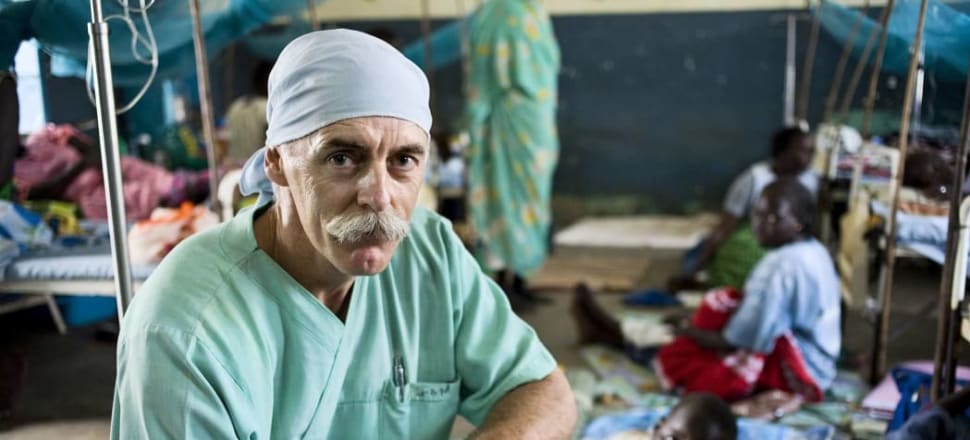
The first in an occasional series of despatches from a Kiwi author nursing in a warzone
I was going to retire as a registered nurse and midwife until the war in Ukraine. I knew I could help. After reading about Cleveland neurologist Howard Tucker, born July 10, 1922 and reportedly the oldest practising doctor in the world, my idea was only reinforced.
With all kindness and good intent, many people have told me (now closer to 70 than 60) to hang up the stethoscope, auriscope and phonendoscope, and take it easy. But I still love my work. I’ve practised as a nurse in New Zealand, Australia, Kenya, South Sudan, Afghanistan, Yemen, Sierra Leone, Ossetia/Georgia, Solomon Islands, Iraq, Norfolk Island (who still think they are an independent nation) and back three more time to Afghanistan. The more that people tell me to quit, the more I don’t want to do that. Those sorts of people can get on your nerves after a while. They really can.
Earlier this year I saw a position advertised for a nurse in Ukraine. I arrived five months ago. The work is intense. It's brutal, and it's often heart-wrenching. The wounded soldiers and civilians are many. I commenced my assignment in Lviv, but I put my hand up when volunteers were asked to travel a thousand km east on the train to a city quite a bit closer to the action. No one else put their hand up. I am the oldest of them by about 40 years.
Now I work variously between a military trauma ward, the operating theatres, the dressing clinics and wherever else is needed of this local hospital. My own security is okay. The front is about 100km away and the Russian rockets usually only go about 35 km, unless they fire long-range missiles. But we few international staff get warned early enough and have a bunker in the house and in the hospital. None of the staff ever go to the hospital bunkers. I asked why. One explained, “The stupid Russians are such bad shots their missiles never reach the target. And anyway we refuse to be intimidated. We don’t want to have our days interrupted by them.”
The soldiers (men and women) are brave and heroic. I do my best to cheer them up before and after the surgery. If I see them struggling with anxiety immediately prior to the surgery, I just move in to the patient’s side and hold their hand - usually the left one because the Propofol anaesthetic more often than not gets injected into a vein in the right arm - and stroke the whorl on the top of their head as their eyes glaze over, and they give a little shiver and drift into oblivion. It helps. It really does. You see the pulse drop by 10 beats a minute at least.
One of the patients, Private Bogdan who could speak quite well in English, once pulled my ear down to his pre-anaesthetised face and said quietly, “I tell you Andrei, if I see a Russian tank hiding in the trees 200 metres from my trench, with his big-calibre barrel pointing straight at me, I am not afraid. But in here, on this table, surrounded by this sea of blue gowns, masked faces and white-tiled walls, well then, I am terrified.”
Moments later the surgeon began removing a little more of his right lower arm. Most of it had been blown off by a missile. The staff are very impressed with my stump-bandaging technique. Now they all try and do it the same. Bogdan liked it too.
I met Bogdan again the following day. He was standing on the stairwell landing outside ICU, smoking with a fellow patient. Both were smiling and philosophical. Bogdan, who has piercing blue eyes, told me he hoped to be back with his men before long. He reckoned he could still hold a rifle and shoot with one and a half arms. He appreciated a small gift of a NZ Defence Force insignia which I gave him. He wears it high on his left arm.







